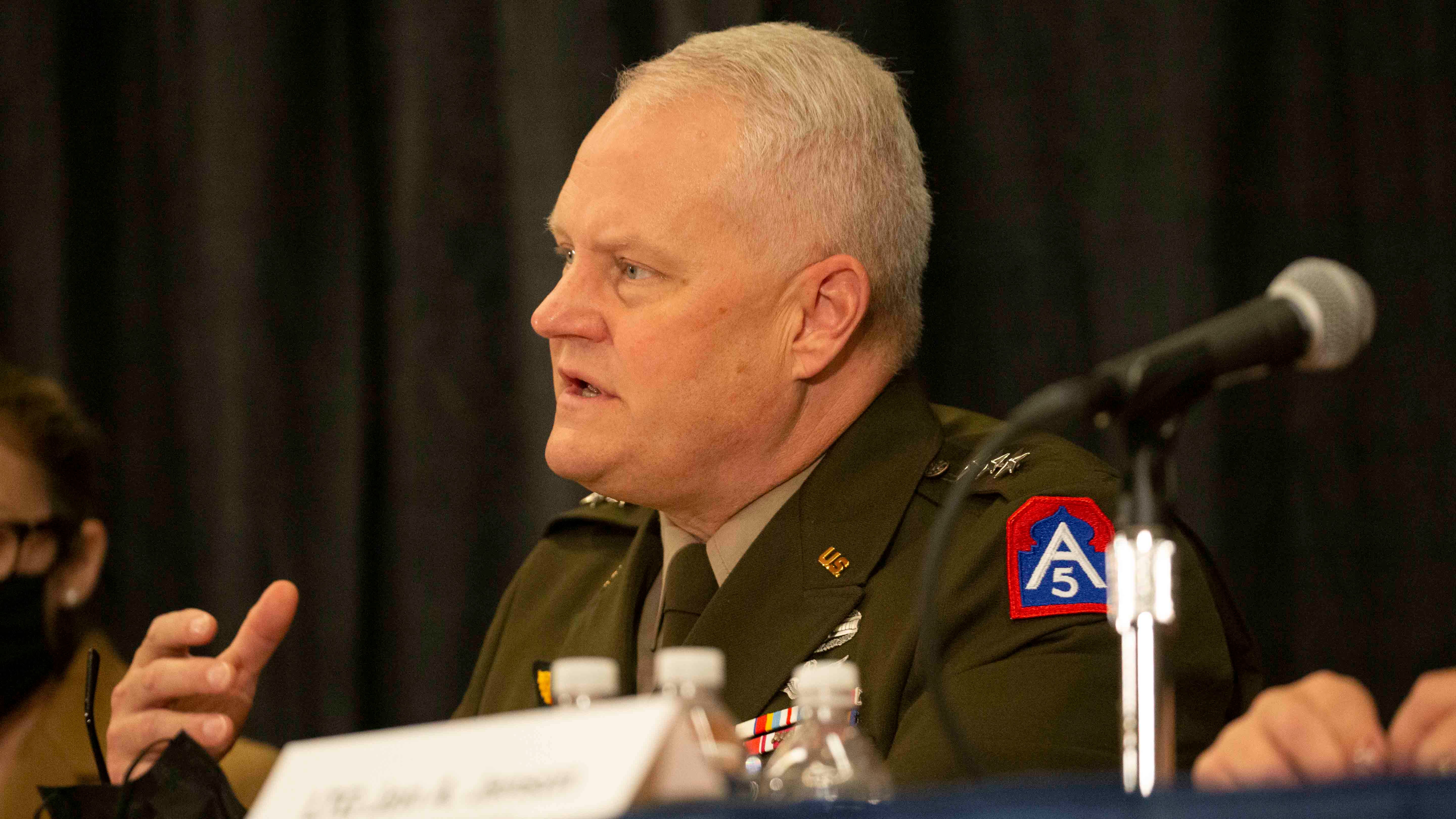Cooperation Critical to National Security, Resilience
Cooperation Critical to National Security, Resilience

National resilience requires close cooperation between the Department of Homeland Security, DoD and the Army, experts said Oct. 12 at a forum held during the Association of the U.S. Army’s 2021 Annual Meeting and Exposition.
“Our country is no longer a safe haven for those who want to do us harm,” said Lt. Gen. A.C. Roper Jr., deputy commander of U.S. Northern Command. Building national resiliency is national defense, he said, noting potential adversaries have been watching as the U.S. responds to disasters and are ready to react if given a chance.
Roper is an Army Reserve officer and former Birmingham, Alabama, police chief who earlier this year became the first Black three-star in Army Reserve history.
The more the U.S. does in response to nature disasters, civil strife and medical emergencies like COVID-19, the more it deters someone from trying to take advantage when the nation’s attention might be weakened, Roper said.
“A global war will cast an impact on the homeland,” he said, stressing the importance of showing now that the U.S. can launch a whole-of-government effort on resiliency.
Heather King, deputy assistant defense secretary for homeland defense integration and defense support of civil authorities, said the U.S. isn’t going to get safer on its own. Threats of terrorism, severe weather and other calamities are becoming larger problems with larger implications, King said. “Preparedness equates to better resilience,” she said.
Working on some of the toughest problems now, and working with other federal, state and local offices, will provide important experiences, she said. “We need to be creative. There are never enough resources,” she said.
Lt. Gen. John Evans, Army North commanding general, a command that has homeland defense as its top priority, said natural disasters are getting bigger, with needs stretching over wider areas and more states. On top of that, deployments of U.S. units from the U.S. to overseas missions are no longer guaranteed to be uncontested, Evans said.
Complicating this, much of the critical infrastructure needed for a big U.S. deployment does not belong to DoD, Evans said.
— Rick Maze

